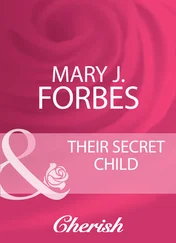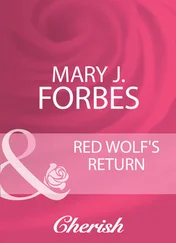“You’re a good and loving brother.” The best son.
“Even when I don’t clean up her toys?”
Ginny smiled. “Let’s not push it.”
“Hear that, Jo? Mama’s backtracking again.”
“Ma-ma-ma-mmm!” Out came the finger, pointing at Ginny, who kissed the wet digit, her eyes filling again.
“Let’s set in the letters,” she said.
Each had written to Boone. Ginny included Joselyn in hers, along with words of grief and love and hope and wishes. I wish you hadn’t died. I wish we could grow old together. I wish I could talk to you, tell you I love you. Just once more.
Alexei laid his letter in the hole and sprinkled on a bit of dirt. Swiping his nose with the back of his hand, he looked away.
“Oh, sweetheart.” Ginny cupped her son’s cheek.
“Why did he have to die?”
“You know why, honey.”
“Yeah, but why him?”
She’d asked the same question endlessly. “Alexei, life is full of fog we don’t understand or have control over. The best we can do is face it square on and plow through to the other side.”
“Yeah.” He sniffed. “I guess.”
She kissed his cheek. “Come, let’s finish.”
Tenderly and together, they held the bag as ashes poured over the letters. Joselyn sat quietly in the crook of Ginny’s arm, sucking her thumb. Lastly, they planted the lilies of the valley, then circled the tiny plot with the stones.
She would never come back to this spot. Or to West Virginia.
They were returning to Oregon and her childhood town.
Be at peace, dearest Boone. You’ll be in my heart always.
Carrying Joselyn and holding Alexei’s hand, Ginny climbed back through the trees, to the trail and her old station wagon.
Misty River, Oregon
Ten days later
I n the produce section of Safeway, Luke stared at the woman sizing up a bundle of bananas three bins away.
Ginny?
Blinking, he focused on his ex-wife. It had been over eleven years since he’d seen her last. She had the same pro file. Small, straight nose, concave cheeks, dimple in the one facing him. Hair the color of Belize beach sand, though the style looked as if those chin-length curls had frolicked with a breeze.
His heart boxed his ribs. His palms began to sweat. He took a step forward, her name in his throat.
A blond boy sauntered to her side. “Mama, can we make hamburgers in the backyard tonight?”
Adrenaline scooted across Luke’s skin as she tousled the kid’s hair. “We’re having spaghetti with meatballs, remember?”
“Oh, yeah, right. Hey, Miss Jo.” The kid pulled a miniature thumb from the mouth of the baby sitting in the cart’s basket. “You want rabbit teeth?” Before Miss Jo could whimper, the boy screwed up his face and started gnawing on her neck. “Rawrrr-rawrrr-rawrrr.”
The little girl giggled, a sound light as a musical scale. “Ep-say, no.” She grabbed his hair and pulled.
“Ow.”
“Don’t get her started,” Ginny warned the boy as she set the bananas in the cart and moved to the oranges.
Luke backed away. He was an outsider, looking in on her family—on a life he’d shunned. Bumping into another shopper, he muttered, “Excuse me,” and hurried from the produce section. Near the electronic doors, he dropped his basket on a rack.
She had a family. A husband.
What was she doing in Misty River?
They had to be on vacation. It was almost May, after all. Some families took their vacations early, before school finished. They were simply stopping for a few groceries. Probably had a big Winnebago parked around the corner. Husband was likely reading the paper while she shopped with the kids.
Why that bothered Luke, he couldn’t determine. Virginia Ellen Keegan hadn’t been his wife in damn near a dozen years.
But she could’ve been.
The thought zapped in. Quick, sharp, leaving a ragged tear.
He strode to his silver Mustang convertible parked on a side street. He couldn’t get inside the vehicle fast enough—and when he did, he simply sat staring through the windshield.
Ginny.
Shutting his eyes, he saw her again, heard her voice. A stranger, yet…completely familiar.
He’d never forgotten her.
And if he looked closely, he’d recognize the hole in his heart, where once she had lived and laughed and loved.
At 8:20 Friday morning Ginny pulled in front of Chinook Elementary and turned off the station wagon’s ignition.
“What are you gonna talk to Mrs. Chollas about?” Alexei asked, worry between his eyes.
“I want to make sure she understands about dysgraphia, honey. That’s all.”
“Okay.” He stared at three boys chasing a soccer ball. “I don’t want her to think I’m special.”
“You are special, Alexei. The most special boy in the whole world.” She leaned over and kissed his hair.
“Mo-om! Don’t! People might see.”
“Oops.” She smiled away the tiny prick of hurt; her boy was growing up too fast. “I forgot.”
“Okay.” He opened the door and hopped down. “Bye.”
“Have a good day, ba—” The door slammed. “Baby,” she whispered.
“Ep-say.” Joselyn squirmed in her car seat behind Ginny. “Ep-say, go.”
“That’s right, angel. Alexei’s going to school.” She climbed from the car as her son ran toward the boys chasing the ball. “And we’re having a chat with his teacher.”
She found Mrs. Chollas waiting for her in the fifth-grade classroom. Immediately Ginny liked the woman’s kind eyes and gentle smile.
When they were seated at the teacher’s desk—Joselyn on Ginny’s lap with a notepad and a crayon supplied by the teacher—Mrs. Chollas said, “Alexei is doing quite well in this first week. He’s already made some friends, which really helps ease the transition. He loves math, and is very adept at oral communication in class. But as we discussed on the phone, his writing skills need a great deal of encouragement.”
Ginny understood too well. Offering a smile she didn’t feel, she said, “Have you ever dealt with dysgraphia, Mrs. Chollas?” Few teachers heard of the word, never mind grasped the tangled process that went on in a child’s brain. In Ginny’s experience, they recognized the problem, but many passed it on to a colleague specializing in learning disabilities.
The teacher nodded. “In my twenty years of teaching, I’ve seen almost everything, Mrs. Franklin. Alexei’s case isn’t entirely unusual. We have a laptop he might want to use—”
“He doesn’t want to be labeled,” Ginny interrupted. His past teachers had done exactly that by sending him to resource rooms or modifying his workload. Ginny had tried to boost his confidence by saying that holding a pencil differently, writing in short backward strokes, was okay. “He prefers to handwrite whenever possible.” She looked straight at the teacher. “If you don’t mind deciphering what he’s written.”
Mrs. Chollas smiled. “I’ll have Alexei read his material to me if it’s too illegible. And I’ll work with him after school for a few minutes each day showing him tricks that will make his letters more readable. Would he be willing to do that?”
“Oh,” Ginny said. “He will.” She hoped. Joselyn on her hip, Ginny stood. “Thank you. For putting both Alexei and me at ease. His other teachers… Well. He hated being singled out.”
Mrs. Chollas rose as well. “I understand. Unless it’s a dire situation, my students stay with me in my classroom. Why don’t we start next Monday, say for fifteen minutes or so after school? Does he catch the bus?”
“I drive him.”
“Good. Pick him up at three.” She shook Ginny’s hand. “I promise you my best, Mrs. Franklin.”
Читать дальше












